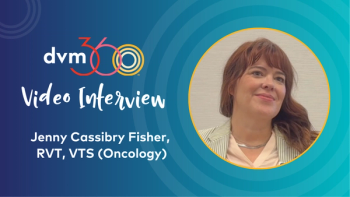
Vets confess: People piss us off.
Frustration with the "people" part of veterinary medicine is inevitable, and sometimes we've all gotta vent. But what happens when it's not just ventingand feeling this way starts to affect your career as a veterinarian?
Dr. Hilal Dogan, founder of the
“I avoid talking to clients like the plague.”
“I love animals-but people suck. If I could get paid and have autonomy doing something else, I'd kick this career like a bad habit!”
The Vet Confessionals Project gets submissions like these all the time. I'm no saint-I've identified with these feelings too, as I'm betting most of us have. Sometimes you need to get something off your chest, and for us, people (read: clients) are just easier to blame. And yet I can't help but wonder: If I approach animals with love but then feel like people are just going to disappoint me, does that change my ability to be helpful?
If we think pet owners are disappointing, does that lead to the idea that pets are victims at the hands of their owners-and that we need to save those pets from their owners? Then, in our futile attempt to be saviors, we end up feeling animosity and judging our clients' actions. Those thoughts prevent us from empathizing with our clients. And what does that belief system do to us and to our profession?
Finding the flexibility
When we serve clients with the underlying belief that they aren't trustworthy or will always do the "wrong" thing, it's reflected in our behavior towards them. We're rigid and uncompromising. But with every step toward awareness of our negative thoughts, we can become more flexible. This allows for more options or outcomes-instead of closing the door to any understanding.
T-shirts and mugs with these messages are funny. But does the underlying sentiment reflect an attitude that's damaging to your career as a veterinarian? Image via Pinterest.What I've realized is that positive beliefs make me a better veterinarian. Blanket thoughts like “People are so disappointing and animals are not” or “Clients always lie” are not accurate nor are they useful as guides. When did we start forming these types of attitudes? Have we always been this way, or was it implied during vet school? I don't know that there's one single answer to that question, but what I do know is that if we keep up with this type of thinking long enough without any responsibility or self-awareness, it's going to lead to continued disappointment and job dissatisfaction.
Self-awareness will set you free
So now you're probably thinking, "Amidst all my responsibilities, now I have to be more self-aware, too?" But trust me, it's not a burden-in fact, in my experience it's been a time-saver.
"Check in" with yourself the next time you feel a rise of judgement, anger or disappointment in a client. Do it again and again. Then revel in the fact that you're spending less time stressing and agonizing over what clients do and say, because you've already allowed yourself that moment to recognize the feeling and how it has the potential to change your behavior.
My advice? Don't try to complete clients' stories. Don't point the finger to find someone to blame for the animal ending up the way it did. Don't be slighted that the animal is now presented to you as a complete train-wreck. After all, someone did show up at your clinic asking you for help.
Let's try to leave wrongdoing and blaming behind and replace anger and frustration with a tincture of love and compassion. As hard as it might be, it may just be our salvation.
Hilal Dogan, BVSc, is an associate at At Home Animal Hospital in Maui, Hawaii. She started the Veterinary Confessionals Project as a senior veterinary student at Massey University in New Zealand.
Newsletter
From exam room tips to practice management insights, get trusted veterinary news delivered straight to your inbox—subscribe to dvm360.






